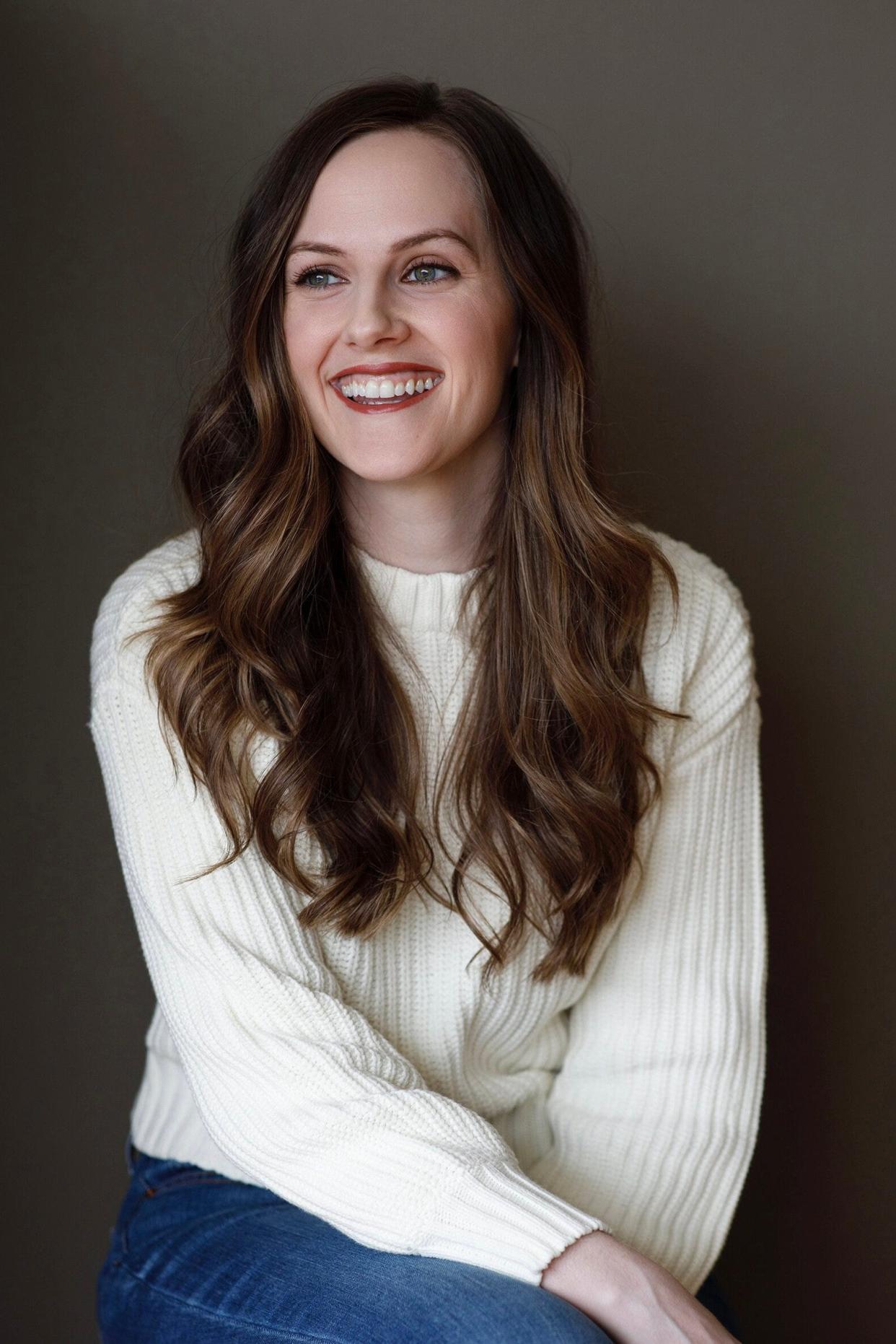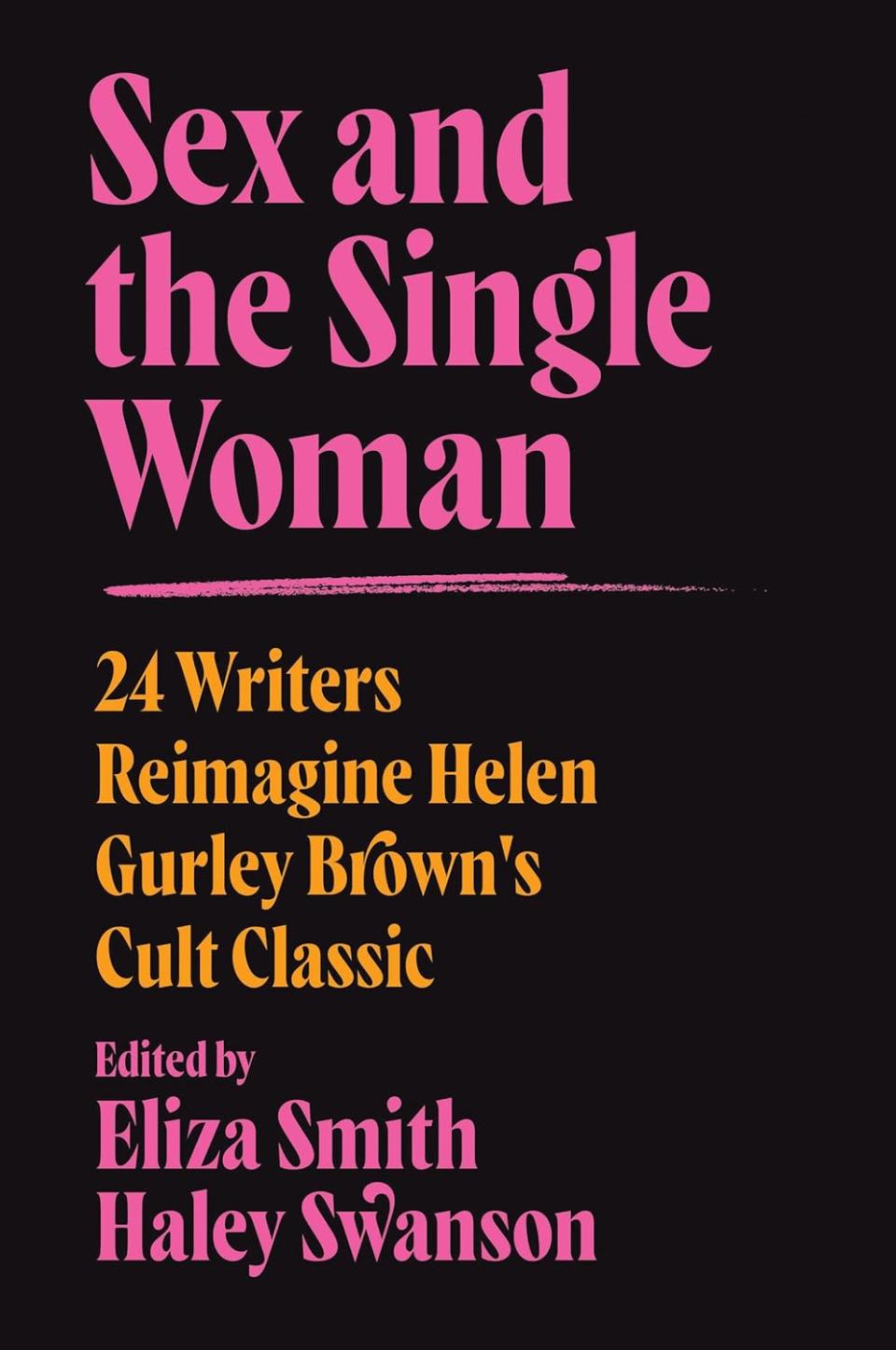MU grad to discuss Helen Gurley Brown, sex writing at Unbound Book Festival

- Oops!Something went wrong.Please try again later.
- Oops!Something went wrong.Please try again later.
Two million copies sold in three weeks. That's the big business Helen Gurley Brown's "Sex and the Single Girl" enjoyed when it arrived on bookstore shelves in May 1962.
Brown's tome both bottled the lightning of a seminal American moment and rearranged the discourse around sexuality, domesticity and womanhood. Brown may have reached millions of women, but she didn't have the final word — not even close.
Decades later, friends Eliza Smith and Haley Swanson walked and talked through seasons of single life together. Their "interrogation of singlehood" eventually, perhaps inevitably, spilled onto the page. In 2022, the pair edited "Sex and the Single Woman: 24 Writers Reimagine Helen Gurley Brown's Cult Classic."
The anthology, which mingles household literary names and emerging writers, is part affectionate hat-tip to Brown, part social corrective; on every page, the book forms an intimate yet wide-screen expression of 21st-century womanhood.
"If Helen's original message was intended to inspire a specific kind of woman to embrace her sexuality and independence," Smith and Swanson write in their introduction, "... then this anthology is intended to broaden that call, exploring all types of relationships (including solo ones) in the hopes that we can recognize rather than remake ourselves."
Smith, who attended the very first Unbound Book Festival while a graduate student at the University of Missouri, will return to Unbound this month to participate in a panel discussion on sex writing.
Writing and editing sentences about sex
Smith will share the panel "Let's Talk About Sex, Baby" with poets Taylor Byas and Jubi Arriola-Headley. In a recent interview, she noted the panel's design runs parallel to the aim of "Sex and the Single Woman": empowering writers to share their sexuality, which touches every facet of a life, in ways that are distinctly their own.
"That seems like an important goal of sex writing — to bring our sexuality into the everyday, and showing a wide spectrum of what that might look like," Smith said.
As an editor, Smith relished working alongside writers whose craft and curiosities led them into different but quite consonant modes of expression.

The brilliant Melissa Febos offers "The Animal Within the Animal," a virtuosic treatment of celibacy and masturbation; Kristen Arnett's essay "Queers Respecting Queers" examines the very promise its title makes; Melissa Faliveno closes the collection with "Tied, Tethered, Unfettered, Free" a novelistic true story about commitment.
Ending with Faliveno, on notes of "ambivalence and release," felt important to the editors, Smith said, in a book that prizes a variety of narrative arcs, never prescribing one way to live single.
Authors arrive from varied angles, accessing the playfulness and sacredness of sex — each tone vital and very necessary, Smith said.
Vanessa Friedman's "If I'm Lonely" is animated by longer sentences that capture the intensity of a sexual encounter, Smith said; "her language changes at a line level to reflect that." Kate Crawford's "Second Coming" writes a wholly different sort of sex scene, the essay chronicling the author's efforts to refresh her sex life in her 60s, including the purchase of a new vibrator.
Elsewhere, Minda Honey's "Big Second-Wife Energy" shows how the casual, pleasurable sides of sex and its more dangerous elements live in unfortunate proximity, Smith said.
Smith and Swanson performed due diligence in developmental editing, but much of making the anthology work — and feel like a natural extension of their own, years-long conversation — came through pacing and sequencing, Smith said.
They wanted readers to sense how these essays communicated with each other and lived under the same sky, she said.
Conversing with Helen Gurley Brown 60 years later
"Sex and the Single Woman" both is and isn't a book-length reply to Helen Gurley Brown.
Smith and Swanson considered structuring a work of equal measure, 13 essays corresponding to Brown's original 13. But they didn't want to fence in their contributors, and opening up the conversation allowed a much fuller exploration of the themes Brown covered without always feeling like a direct response.
Some of Brown's observations remain progressive, Smith said, out front of any time, whereas time has revealed others as regressive. In a very real sense, Brown's book — and the well-orchestrated publicity around it — painted her story as the story for 20th-century women.
Brown casts herself as a "mouseburger" who made the most of her singlehood, eventually reaping the reward of a Hollywood executive husband, Smith said.
"Her recommendations for a life well lived fail to acknowledge her own significant privileges as a cisgender, straight, able-bodied white woman with a wealthy husband and lucrative professional connections," Smith and Swanson write. "While many women readers found liberation in those pages ... the end game for Helen, it seemed, was nearly always a traditional, heteronormative pairing."
In contrast, "Sex and the Single Woman" is more diverse, more queer and — perhaps most central to its purposes — sees singlehood not as a phase to transcend, but a nonlinear part of life, one a woman may transition in and out of.
Brown did show willingness to update her ideas and move with, not merely against, the times, Smith said. She likes to think the author, who died a decade before the anthology's publication, would be "game" to interact with the book — and that she'd definitely appreciate the sex scenes within.
Living out your womanhood this way and that
The conversation continues, tumbling forth from "Sex and the Single Woman" into Smith's memoir-in-progress.
The writer grew up in Joplin, where a sort of purity culture settled over the atmosphere. Smith came to MU at a moment of disruption — at age 20, already having divorced.
She sought to re-order her life, in the "right" order: reclaim her youth, then settle back down into marriage.
After a time, Smith's convictions changed, certain she would never marry again. Today, as a happily married writer and editor, she sees the shaping influence of heteropessimism. The term, attributed to writer Asa Seresin, describes "an attitude of disappointment, embarrassment or despair at the state of heterosexual relations —specifically about being in one," The Conversation noted in 2022.
Smith's doubts about heterosexual possibility ran along a line through sitcom stereotypes, back to the sort of gender differences Brown posited in her work, she said.
Now after editing a well-tuned book on singlehood, she's writing one about a happy marriage, and trying to write without treating her relationship as some grand exception to the rule, Smith said.
Having arrived on campus in Columbia first as an undergraduate, then returning a few years later to earn a master's degree in journalism, Smith sees how a book like "Sex and the Single Woman" might have played a fruitful role in her past life.
Overly concerned with hewing to one right trajectory, and lacking examples to the contrary, she internalized feelings of failure.
"I think a book like this might have helped me see that there was just no need to feel embarrassed or to have any shame over those things," Smith said. "And that there were a lot of options of how life could look. I didn’t have to force myself into a box."
She expressed confidence in the current generation of college women, hoping they know the freedom to live without shame or misunderstanding. As she and Swanson wrote, their book "offer(s) up these essays, narratives about living this way, that way, and every way in between, reclaiming joy where it's so often been denied."
This year's Unbound runs April 18-21. For a full list of festival panels, visit https://www.unboundbookfestival.com/panels.
Aarik Danielsen is the features and culture editor for the Tribune. Contact him at adanielsen@columbiatribune.com or by calling 573-815-1731. He's on Twitter/X @aarikdanielsen.
This article originally appeared on Columbia Daily Tribune: Hear MU grad discuss Helen Gurley Brown, sex writing at Unbound fest

